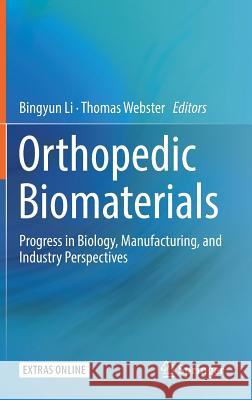Orthopedic Biomaterials: Progress in Biology, Manufacturing, and Industry Perspectives » książka
topmenu
Orthopedic Biomaterials: Progress in Biology, Manufacturing, and Industry Perspectives
ISBN-13: 9783319895413 / Angielski / Twarda / 2018 / 496 str.
Kategorie BISAC:
Wydawca:
Springer
Język:
Angielski
ISBN-13:
9783319895413
Rok wydania:
2018
Wydanie:
2018
Ilość stron:
496
Waga:
0.87 kg
Wymiary:
23.39 x 15.6 x 2.87
Oprawa:
Twarda
Wolumenów:
01
Dodatkowe informacje:
Wydanie ilustrowane











